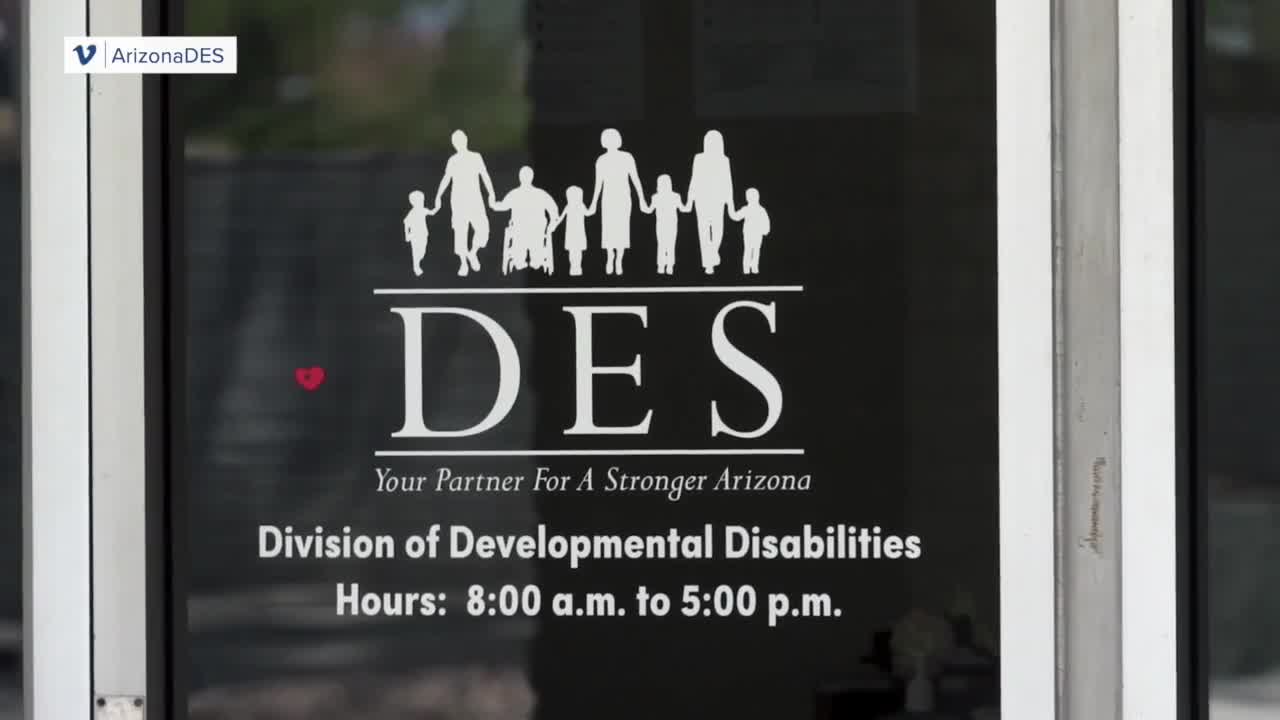PHOENIX — The state is changing and pausing policies that would have led to major service cuts for Arizona children with disabilities, Gov. Katie Hobbs announced Thursday.
The Division of Developmental Disabilities rolled out changes to how it assesses the needs of children younger than 18 on Oct. 1 to comply with a state law requiring reforms. The resulting service cuts were projected to save DDD, which faces a budget shortfall, $133.2 million.
The changes would have restricted attendant care, which pays for care workers who help provide safe and healthy living conditions, and implemented age-based limits on habilitation, or therapies that help those with disabilities learn needed life skills. Advocates had called the revamped policies “catastrophic.”
How DDD's policies are changing
Hobbs has directed the state's Medicaid program, the Arizona Health Care Cost Containment System, or AHCCCS, to reevaluate the assessment tool to add an exception for children who need extraordinary care and new assessment categories.
“Arizonans with disabilities and their families deserve to have a say in decisions that affect their lives,” she said in a statement. “By working together, increasing transparency and community input, we will continue delivering the best in the nation care to Arizonans with disabilities, including intellectual and developmental disabilities, while ensuring these services remain fiscally sound for years to come."
Assessments will be on hold until the tool is updated, giving parents time to apply for an Extraordinary Care Review.
Brandi Coon, a mother who founded the advocacy group Raising Voices Coalition, told ABC15 these changes are what families have been asking for.
"We have been asking for over six weeks for a pause, an exception process to be put in place. ... And this is just a day of validation and feeling heard by those in leadership,” she said.
State law required changes to DDD assessments
Funding legislation that saved DDD from running out of money last spring required the state to update the assessment tool. The Department of Economic Security and AHCCCS took input on the proposal over the summer, but the restrictions on children’s service hours weren’t in the version sent out for public comment.
DES Director Michael Wisehart previously told ABC15 that AHCCCS decided on the cuts.
“AHCCCS did a tremendous amount of due diligence on their medical and clinical side to make sure that what finally was implemented in the assessment was the best possible alternative, given the medical expertise that they had,” he said.
But families had argued the age-based restrictions were not based on medical standards.
Hobbs’ administration is expediting the changes through an emergency rule-making process approved by Attorney General Kris Mayes.
The revised assessment tool will also go through the regular rule-making process, and AHCCCS will take public comment on the affected policies.
“We're really excited for this to go back to the drawing board, to have individuals involved who want there to be sustainability, long-term success for these programs, but also ensure that we're not harming children with profound disabilities in the process,” Coon said.
Budget implications unclear
The updates come as DDD grapples with another budget shortfall. The service cuts to children were projected to save about $133.2 million, including $47.4 million in Arizona General Fund dollars.
Even with those projected savings, DDD was planning to ask state lawmakers for additional funding: an estimated $56.3 million from the general fund and $103.1 million in federal dollars.
Last spring’s shortfall sparked a bitter battle in the Legislature before lawmakers passed a bipartisan solution that covered the budget hole and mandated reforms, including a new assessment tool.
Wisehart has said the state will need to make hard decisions about services if the Legislature doesn’t approve supplemental funding for DDD.
“The only way that we can avoid having this additional funding need is to either reduce the number of individuals that are coming into the program – waiting lists would be the only way to do that – or to further reduce the array of services,” he told ABC15 in September.



